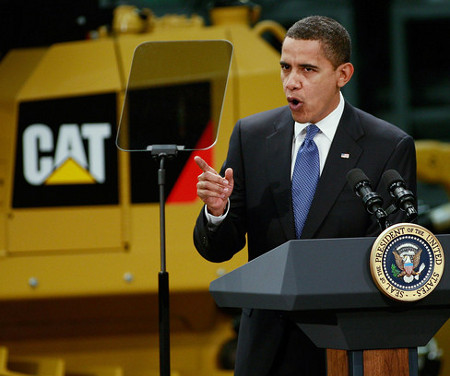Finding Galt’s Gulch
 In Ayn Rand’s Atlas Shrugged
In Ayn Rand’s Atlas Shrugged there was a hidden refuge in a valley of Colorado where the people of ability had retreated to after relinquishing participation in American society. It was aptly nicknamed “Galt’s Gulch” by its inhabitants, though it was more properly named “Mulligan’s Valley” since it was the property of Michael “Midas” Mulligan, a banker and one of the first strikers to heed John Galt’s call.
The basic premise is that the United States has degenerated into an authoritarian, quasi-Marxist state, strangling business, innovation, and personal liberty in favor of an non merit-based egalitarian result. John Galt responds by convincing the productive and innovative people – the “Men of the Mind” – to withdraw from society and take their skills and visions with them, “stopping the motor of the world” by withdrawing the “minds” that drive society’s growth and productivity.
John Galt is Prometheus who changed his mind. After centuries of being torn by vultures in payment for having brought to men the fire of the gods, he broke his chains — and he withdrew his fire — until the day when men withdraw their vultures.
— Francisco d’Anconia
Atlas Shrugged, Part II, Chapter V
One thing that strikes me as odd – and more than a little frustrating – is that both Rand’s supporters and detractors view this as a Dystopian future, as if it wasn’t, in pragmatic effect, already well underway.
Ayn Rand’s Future Is Now
In the real world Galt’s Gulch aka Mulligan’s Valley isn’t some concealed refuge in Colorado; it’s the global marketplace and the Third World labor pool. Business leaders are finding Galt’s Gulch in many places outside of America’s borders and jurisdiction.
- Decline of Manufacturing
America no longer produces much domestically. Over the last 60 years there’s been slightly over of 66% drop in employment within factories inside the US and a commensurate rise in off-shoring manufacturing to places such as Mexico and China. - Decline of Innovation
Scientific and technological advances are also, more and more, coming from overseas. Companies are now paying scientists in China, India, Singapore, and other foreign lands to perform R & D instead of using more expensive domestic scientists and research facilities.
The motor is already stopping. Corporations, faced with the inability to compete globally with less restrictive regimes and with lower order economies while using domestic labor and facilities, are already “striking” and moving more and more of their operations outside of America.
Tags: America | Atlas Shrugged | Ayn Rand | Books & Reading | Capitalism | Dystopia | Economics | Freedom | Labor | Labor Unions | Liberty | Politics | Socialism | Society | Statism | Taxes
 Let us for a moment consider what must be also be true if the tired and overly simplistic axioms about the Republican and Democratic parties’ affiliations and loyalties are actually fundamentally true. Let us, as a mental exercise in preparation for the upcoming 2010 Congressional Mid-Term Elections, take at face value the axioms that the Republicans are the “Party of Business” and the Democrats are the “Party of Labor.”
Let us for a moment consider what must be also be true if the tired and overly simplistic axioms about the Republican and Democratic parties’ affiliations and loyalties are actually fundamentally true. Let us, as a mental exercise in preparation for the upcoming 2010 Congressional Mid-Term Elections, take at face value the axioms that the Republicans are the “Party of Business” and the Democrats are the “Party of Labor.”

